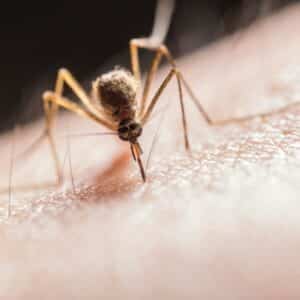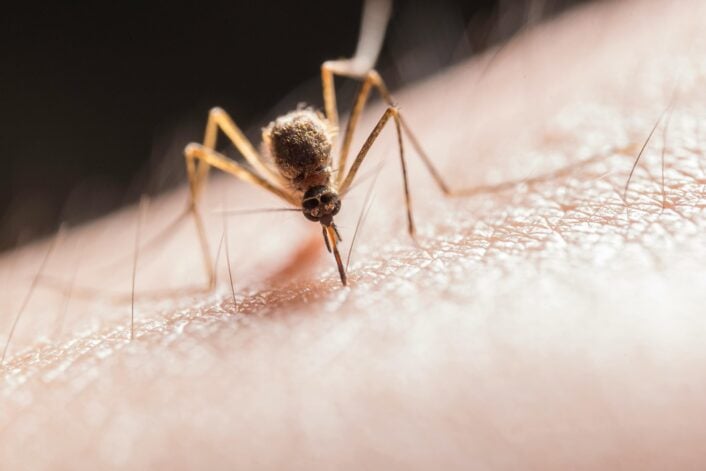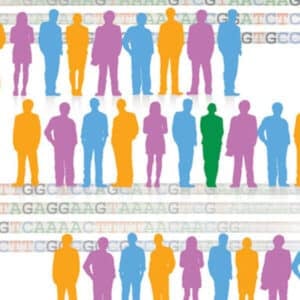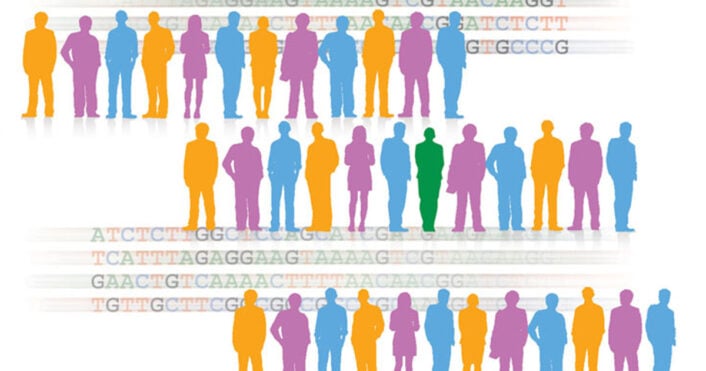Can You Smell Nature’s Perfume? The Genetics Behind Grassy Aroma Detection
Aira
on
August 12, 2024
Overview
Ever wondered why some people seem to have a heightened sense of smell, picking up on fragrances others miss? As it turns out, the ability to detect different aromas, like the fresh scent of grass, is deeply rooted in a person’s genetics.
What is an Aroma?
Aroma, often described as the essence or characteristic smell of a substance, is an intricate interplay of molecules stimulating our olfactory receptors. These receptors, located in the nasal cavity, are specialized cells capable of detecting various odors and sending signals to the brain for interpretation. However, not all noses are created equal. Some individuals possess a remarkable sensitivity to specific scents, such as the unmistakable aroma of freshly cut grass.
Aroma is more than just a pleasant scent; it’s a complex interaction between molecules and the sense of smell. When a person encounters an aroma, they experience the result of volatile compounds evaporating from a substance and stimulating specialized cells in the nasal cavity called olfactory receptors. These receptors, located in a patch of tissue called the olfactory epithelium, are equipped to detect an extensive range of odorous molecules.
Each aroma is composed of a unique combination of these molecules, which bind to specific receptor proteins on the surface of olfactory receptor cells. These bindings trigger electrical signals that are then transmitted to the brain’s olfactory bulb for interpretation. Remarkably, humans can distinguish between thousands of different aromas, thanks to the intricate network of receptors and neural pathways dedicated to olfaction.
The perception of aroma is subjective and can vary from person to person based on genetic factors. Genetic variations in olfactory receptor genes can influence an individual’s sensitivity to certain aromas, making some people more attuned to specific scents than others. Additionally, environmental factors, such as exposure to certain smells during critical periods of development, can further shape our olfactory preferences and sensitivities.
Understanding the science behind aroma perception not only enhances our appreciation for the world of scents but also offers insights into how our genetics influence our daily experiences, habits, and preferences.

Can People Have Different Aroma Perceptions?
Yes, people can indeed have different aroma perceptions, and these differences can be influenced by both genetic and environmental factors. Scientific research has shown that variations in olfactory receptor genes can impact an individual’s sensitivity to certain smells. For example, a study found that genetic differences in the OR2J3 gene influence people’s ability to detect the scent of certain compounds, such as cis-3-hexen-1-ol, which is abundant in grassy aromas.
Furthermore, our olfactory perceptions can also be shaped by environmental factors. Exposure to particular smells during critical periods of development, such as childhood, can influence our sensitivity to those aromas later in life. Additionally, cultural differences and personal experiences can play a significant role in how we perceive and interpret different smells.
Overall, while there are general trends in how people perceive aromas, individual differences in genetics, life experiences, and environmental factors can lead to variations in aroma perception among individuals. Understanding these factors can provide valuable insights into why people may have different preferences for certain scents and how genetics influence our daily sensory experiences.
Why are Some People More Sensitive to Some Smells?
The ability to detect certain smells is influenced by a combination of genetic and environmental factors. Moreover, environmental factors, such as exposure to certain aromas during critical periods of development, can also shape olfactory sensitivity. Studies suggest that repeated exposure to particular odors can enhance the brain’s ability to recognize and distinguish those scents over time.
Understanding the genetic underpinnings of aroma detection not only sheds light on our sense of smell but also has implications for various fields, including food science, perfumery, and even healthcare. In this article, we delve into the fascinating world of genetics and aroma perception, exploring why some individuals possess a keener nose for grassy scents than others.
Is the Ability to Detect Grassy Aroma Genetic?
In a 2012 study, researchers found that our ability to smell certain scents, like the fresh scent of freshly cut grass, can vary from person to person due to differences in our genes. They studied 25 odorant receptor genes on human chromosome 6 to identify the specific ones that are associated with detecting a compound called cis-3-hexen-1-ol, which gives off a green grassy aroma. By studying the DNA of 52 individuals from different backgrounds, they discovered a total of 147 variations in these 25 genes.
In their experiments, they found that three of these genetic variations, including one in a gene called OR2J3, the Olfactory receptor 2J3, were strongly linked to how well people could detect cis-3-hexen-1-ol. Further tests in the lab showed that OR2J3 and two other genes could respond to this compound. Interestingly, they also found that certain combinations of changes in the OR2J3 gene could affect its ability to detect the grassy aroma.
In fact, two highly linked SNPs in OR2J3 explained about 26.4% of the differences in people’s ability to detect cis-3-hexen-1-ol in their study group. This suggests that variations in this gene (such as the SNP rs28757581) play a significant role in how people perceive the smell of freshly cut grass.
What Other Factors Can Affect Ability to Detect Grassy Aroma?
Environmental factors play a significant role in shaping an individual’s ability to detect grassy aromas. While genetic predispositions lay the foundation for olfactory sensitivity, environmental influences can further refine and enhance these abilities. Here are some of the environmental factors that can affect a person’s perception of grassy aromas:
- Early Life Exposure: Exposure to specific smells during critical periods of development, particularly in early life, can profoundly influence olfactory sensitivity. Research suggests that repeated exposure to certain aromas during infancy and childhood can shape the development of olfactory pathways in the brain, leading to heightened sensitivity to those smells later in life. For example, individuals who grew up in rural areas surrounded by grassy landscapes may develop a keener sense of grassy aromas due to frequent exposure during formative years.
- Cultural Influences: Cultural background and upbringing can also impact how individuals perceive and interpret aromas. Different cultures have varying attitudes towards smells, with some cultures placing greater emphasis on certain scents than others. Cultural practices, such as cuisine and traditional herbal remedies, can expose individuals to a diverse array of aromas from an early age, influencing their olfactory preferences and sensitivities. For instance, cultures with a tradition of using fresh herbs and spices in cooking may develop a heightened sensitivity to grassy aromas present in culinary ingredients.
- Occupational Exposures: The nature of one’s occupation can also influence exposure to grassy aromas and subsequently affect olfactory perception. Individuals working in professions such as agriculture, landscaping, or gardening may have regular exposure to grassy scents as part of their daily routine. Prolonged exposure to these aromas in the workplace can lead to desensitization or habituation over time, potentially reducing sensitivity to grassy odors. Conversely, occupations that involve frequent exposure to a wide range of smells, such as chefs or perfumers, may enhance olfactory acuity through constant stimulation of the olfactory system.
- Urban vs. Rural Environments: The environment in which an individual resides can significantly influence their exposure to grassy aromas. Urban environments, characterized by concrete jungles and limited green spaces, may offer fewer opportunities for encountering natural smells like freshly cut grass. In contrast, individuals living in rural or suburban areas with ample greenery are more likely to be exposed to grassy scents on a regular basis. Therefore, the degree of urbanization and proximity to natural landscapes can impact olfactory experiences and sensitivity to grassy aromas.
- Personal Health and Lifestyle Factors: Individual health and lifestyle choices can also influence olfactory perception. Factors such as smoking, alcohol consumption, and certain medications have been linked to alterations in olfactory function, potentially affecting the ability to detect and discriminate between different aromas. Additionally, underlying health conditions such as allergies or sinus infections can impair olfactory function, diminishing the ability to perceive grassy scents accurately.
While genetic factors provide a foundation for olfactory sensitivity, environmental influences play a crucial role in shaping an individual’s ability to detect grassy aromas. Early life exposure, cultural influences, occupational exposures, urbanization, and personal health and lifestyle factors all contribute to the intricate interplay between genetics and environment in determining olfactory perception.
Understanding these environmental factors can provide valuable insights into why individuals may differ in their sensitivity to grassy aromas and how lifestyle choices and experiences shape our sensory experiences.
Does Grassy Aroma Improve Mood?
Research suggests that exposure to natural environments, including the scent of freshly cut grass, may have positive effects on mood and well-being. A study found that participants who spent time in green spaces reported lower levels of stress and improved mood compared to those in urban environments. The scent of freshly cut grass, in particular, has been associated with feelings of happiness and relaxation.
These mood-enhancing effects may be attributed to the association of grassy aromas with pleasant outdoor activities, such as picnics, gardening, and outdoor sports, which are often linked to feelings of leisure and enjoyment.
Additionally, the presence of certain compounds in grassy aromas, such as cis-3-hexen-1-ol, may have a calming effect on the nervous system, further contributing to improved mood and relaxation.
While more research is needed to fully understand the mechanisms behind the mood-enhancing effects of grassy aromas, existing evidence suggests that exposure to these natural scents may have beneficial effects on mental well-being.
Therefore, incorporating activities that involve exposure to grassy aromas, such as spending time outdoors or bringing indoor plants into living spaces, may help promote positive mood and overall psychological health.
Is Smelling a Cognitive Ability?
Smelling, or olfaction, is indeed a cognitive ability that involves the complex interplay of sensory perception, neural processing, and cognitive interpretation. When a person smells something, their olfactory receptors detect volatile molecules in the air, triggering electrical signals that are transmitted to the brain for processing.
The brain’s olfactory bulb, located in the frontal lobe, plays a crucial role in interpreting and making sense of olfactory signals. This region of the brain processes information about different smells and integrates it with other sensory inputs, memories, and emotions to create a comprehensive olfactory experience.
Furthermore, olfaction is closely linked to various cognitive functions, including memory, emotion, and perception. Research has shown that smells can evoke powerful memories and emotions, often more vividly than other sensory cues. This phenomenon, known as the Proustian effect, highlights the strong connection between olfaction and memory retrieval.
Moreover, olfaction influences our perception of flavor, as the sense of smell contributes significantly to our ability to taste. The brain combines olfactory information with taste signals from the tongue to create the overall perception of flavor.
Overall, smelling is not just a sensory experience but also a cognitive process that involves the integration of sensory information with cognitive and emotional responses. Understanding the cognitive aspects of olfaction provides insights into how smells influence our perception, memory, and behavior.
Can You Be Allergic to Certain Scents?
It is possible to be allergic to certain scents, although the term “scent allergy” is somewhat misleading. What people commonly refer to as a scent allergy is actually a sensitivity or allergic reaction to specific chemicals or compounds found in fragrances.
Fragrances contain a variety of volatile organic compounds (VOCs), some of which can trigger allergic reactions in susceptible individuals. These reactions can range from mild symptoms such as sneezing, coughing, or watery eyes to more severe reactions such as asthma attacks or skin irritation.
Common fragrance allergens include compounds such as limonene, linalool, and geraniol, which are often found in perfumes, cosmetics, and household products. Additionally, natural scents such as those from flowers, trees, or grasses can also contain allergenic compounds that may trigger allergic reactions in sensitive individuals.
Allergic reactions to scents are not necessarily genetic, although there may be a genetic predisposition to allergies in general. Environmental factors such as exposure to certain fragrances or a history of allergies in the family can also contribute to the development of scent sensitivities. Individuals with known sensitivities should avoid exposure to triggering scents and seek medical advice if they experience symptoms of an allergic reaction.
Ways to Improve Aroma Detection
Improving aroma detection can enhance one’s sensory experiences and appreciation for the diverse array of scents in the environment. While genetic factors play a significant role in determining olfactory sensitivity, there are several strategies individuals can employ to optimize their ability to detect aromas:
Practice Smell Training
Smell training, also known as olfactory training, involves regularly exposing oneself to a variety of scents to stimulate and enhance olfactory function. Studies have shown that smell training can lead to improvements in odor identification and detection thresholds, particularly in individuals with reduced olfactory function due to conditions such as anosmia or aging.
Engage in Aromatic Activities
Engaging in activities that involve exposure to a wide range of smells can help sharpen olfactory perception. Cooking with fresh herbs and spices, gardening, or exploring natural environments rich in diverse aromas can provide valuable olfactory stimulation and contribute to improved aroma detection abilities.
Maintain Good Nasal Health
Ensuring optimal nasal health is essential for maximizing olfactory function. Keeping the nasal passages clear of congestion and inflammation through techniques such as nasal irrigation or steam inhalation can help improve scent detection by facilitating the flow of odor molecules to the olfactory receptors.
Stay Hydrated
Adequate hydration is crucial for maintaining optimal olfactory function. Studies have shown that dehydration can impair olfactory sensitivity, potentially reducing the ability to detect and discriminate between different aromas. Therefore, staying well-hydrated by drinking plenty of water throughout the day can help support healthy olfactory perception.
Limit Exposure to Strong Odors
Prolonged exposure to strong or overpowering odors can desensitize the olfactory system over time, potentially reducing sensitivity to more subtle aromas. Avoiding prolonged exposure to environmental pollutants, chemical fumes, or strongly scented products can help preserve olfactory sensitivity and improve aroma detection abilities.
Seek Professional Guidance
In cases where individuals experience persistent or significant changes in olfactory function, seeking guidance from a healthcare professional, such as an otolaryngologist or a neurologist specializing in smell disorders, can be beneficial. These specialists can assess olfactory function, identify any underlying conditions contributing to smell disturbances, and recommend appropriate interventions or treatments.
Genetics play a significant role in determining olfactory sensitivity but adopting lifestyle practices that promote olfactory health and engagement can help enhance aroma detection abilities.
By incorporating smell training, engaging in aromatic activities, maintaining nasal health, staying hydrated, limiting exposure to strong odors, and seeking professional guidance when necessary, individuals can optimize their olfactory perception and enrich their sensory experiences.
LifeDNA’s Ability to Detect Grassy Aroma Report
Unlock the secrets hidden within your DNA with LifeDNA’s Trait Reports, including LifeDNA’s Ability to Detect Grassy Aroma Trait Report. Ever wondered why some people are more sensitive to the fresh scent of grass? Now you can discover the genetic factors behind this unique trait and gain valuable insights into your olfactory sensitivity.
Our scientifically-backed Personality and Cognition Report offers a comprehensive analysis of your genetic predispositions, empowering you to better understand yourself and make informed lifestyle choices. But that’s just the beginning. With over 200 trait reports available under LifeDNA’s Wellness, Nutrition, Fitness, Vitamins and Supplements, Sleep, and Skincare categories, you’ll uncover a wealth of knowledge about your body’s unique needs. By unlocking the secrets of your DNA, you’ll gain valuable insights into which vitamins, supplements, and lifestyle changes can optimize your health and well-being.
Ready to embark on your wellness journey? Take the first step today with LifeDNA’s personalized Trait Reports. Start understanding your genetics like never before and unlock the potential for a healthier, happier you. Don’t wait—seize the opportunity to discover the power of your DNA and take control of your health today.
Summary
- The ability to detect various aromas, such as the fresh scent of grass, is influenced by genetics.
- Aroma perception is an intricate process involving olfactory receptors in the nasal cavity.
- Genetic variations in olfactory receptor genes can impact sensitivity to specific smells.
- Environmental factors, like early life exposure and cultural influences, also shape aroma perception.
- Research has identified genes on chromosome 6 associated with detecting the grassy aroma compound cis-3-hexen-1-ol.
- Certain genetic variations, including those in the OR2J3 gene, strongly affect the detection of cis-3-hexen-1-ol.
- Environmental factors such as occupation and urban vs. rural environments can impact aroma perception.
- Exposure to natural scents like grassy aromas may improve mood and well-being.
- Olfaction is both a sensory and cognitive ability that influences memory, emotion, and perception.
- Allergies to certain scents can occur due to sensitivity to specific compounds found in fragrances.
- Strategies to improve aroma detection include smell training, engaging in aromatic activities, and maintaining nasal health.
References
- https://dictionary.cambridge.org/us/dictionary/english/aroma
- https://www.sciencedirect.com/topics/medicine-and-dentistry/olfactory-receptor#:~:text=Olfactory%20receptors%20(ORs)%20belong%20to,species%2C%20from%20fish%20to%20mammals.
- https://www.verywellhealth.com/olfactory-epithelium-anatomy-5105135#:~:text=The%20olfactory%20epithelium%20is%20membranous,in%20the%20sense%20of%20smell.
- https://www.ncbi.nlm.nih.gov/pmc/articles/PMC3408771/
- https://academic.oup.com/chemse/article/37/7/585/300745?login=false
- https://goodlifefamilymag.com/2021/04/06/7-natural-scents-to-help-boost-your-mood/
- https://www.takingcharge.csh.umn.edu/how-does-nature-impact-our-wellbeing#:~:text=Being%20in%20nature%2C%20or%20even,the%20production%20of%20stress%20hormones.
- https://www.ncbi.nlm.nih.gov/pmc/articles/PMC8125471/#:~:text=A%20study%20that%20examined%20the,overall%20mood%2C%20and%20lower%20perceived
- https://pursuit.unimelb.edu.au/articles/how-smelling-can-help-your-brain#:~:text=To%20identify%20the%20smell%20as,is%20considered%20a%20cognitive%20task.
- https://www.initial.com/blog/premium-scenting/proustian-effect
- https://www.pca.state.mn.us/pollutants-and-contaminants/volatile-organic-compounds-vocs#:~:text=Volatile%20organic%20compounds%20(VOCs)%20are,a%20variety%20of%20health%20effects.
- https://boomboomnaturals.com/blogs/news/how-to-improve-sense-of-smell
- https://www.sinusdoctor.com/prioritizing-nasal-health-in-daily-life/#:~:text=Proper%20nasal%20cleansing%20forms%20the,environment%20conducive%20to%20optimal%20functioning.
*Understanding your genetics can offer valuable insights into your well-being, but it is not deterministic. Your traits can be influenced by the complex interplay involving nature, lifestyle, family history, and others.
Our reports and suggestions do not diagnose or treat any health conditions or provide any medical advice. Consult with a healthcare professional before making any major lifestyle changes or if you have any other concerns about your results.



















